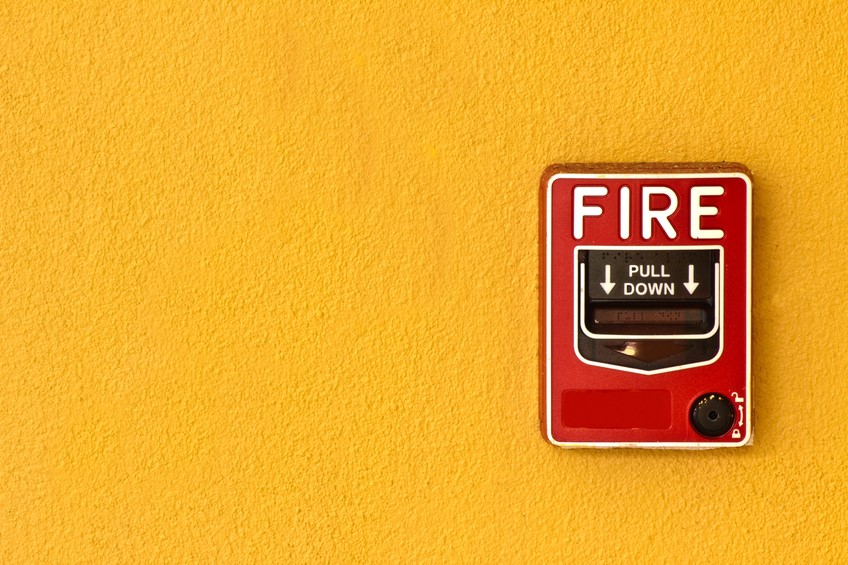The U.S. Occupational Safety and Health Administration (OSHA) cites retailers over and over for failing to ensure that their stores are fire-safe. Retailer Dollar General has been OSHA’s most cited case in point, although they are far from the only offender. Since 2010, OSHA has recorded more than 100 safety and health violations at Dollar General stores nationwide, and assessed more than $1 million in proposed fines.
 |
Inspections of Dollar General locations in Jonestown, Pennsylvania and Bolivar, Ohio in 2016 revealed multiple repeated violations involving emergency exit doors and egress routes, but those were not the only problem areas—and Dollar General is not the only retailer that deals with them. In addition to exit doors and egress, OSHA often cites retailers for other fire safety-related issues. Here are some things to check when you’re walking around your workplace this holiday season.
Fire Extinguishers
A trained employee might be able to put out a small fire before it becomes a large fire, saving both property and lives—but not if there’s a problem with the fire extinguishers. OSHA found problems with the fire extinguishers at Dollar General; are these problems in your workplace, too?
OSHA cited the Bolivar store for blocked and mislabeled fire extinguishers. Fire extinguishers in the stock room and on the sales floor at the Bolivar store were blocked by stacked and stored materials, and the stock room fire extinguisher was not labeled with a red locating arrow. Instead, there was a red locating arrow elsewhere in the stockroom, indicating the presence of a fire extinguisher even though there was no fire extinguisher there. Similar problems had been cited earlier at the two Mississippi stores.
Electrical Panel Boxes
OSHA’s electrical standards require that the space around electrical panel boxes be kept clear and not used for storage. This is both an electrical safety and a fire safety issue. Flammable materials stored too closely to the panel boxes could be ignited if something was to go wrong inside the electrical panel that caused arcing or sparking.
Workers who must open panel boxes to perform work must have enough clear space to work safely without accidentally contacting live parts; in addition, if someone elsewhere in the workplace is being electrocuted or if there is a need for any other reason to shut off power to the worksite, the panel boxes must be readily accessible. Unfortunately, like fire doors, the space in front of electrical panel boxes often looks to retail employees like a conveniently empty space to stash stuff.
But it’s not. Don’t let this happen in your workplace:
- Conductive carts placed in front of electrical panel boxes. At the Jonestown store, “rolltainers” (carts with wheels) were placed against the electrical panel doors—a condition described by OSHA as an electrical hazard because it could lead to arcing or inadvertent contact with live parts inside the boxes. Similar violations had been cited at seven other Dollar General locations in six states.
- Materials stored inside the marked clear space around electrical panel boxes. At the Bolivar Dollar General, employees had placed cardboard boxes, plastic containers, paper towels, a plastic step, a folding chair, and a long-handled dust pan inside the red line that marked the space around the electrical panel box in the employee breakroom. Although these materials did not pose an electrical hazard like the rolltainers did, they could have prevented the “ready and safe operation of” the equipment inside the panel boxes. OSHA had cited the retailer for similar violations at two Mississippi stores earlier in the year.
Retail jobs may not be highly hazardous, but when storage space is in short supply, workers may be tempted to use what they can find and, in doing so, create a hazard where none existed. Make sure that your workers know to keep fire exits, exit routes, fire extinguishers, and electrical panel boxes clear, unobstructed, and easily accessible.
Need more information on fire extinguishers or electrical safety? Safety.BLR.com is clearly marked and easy to find.
